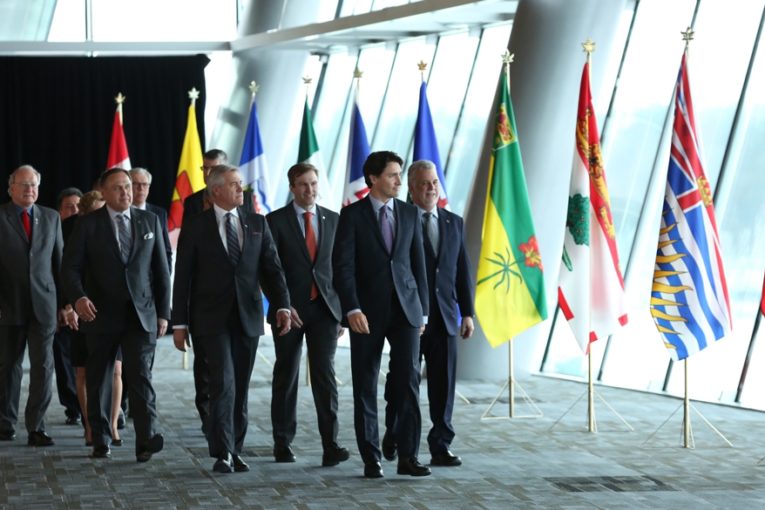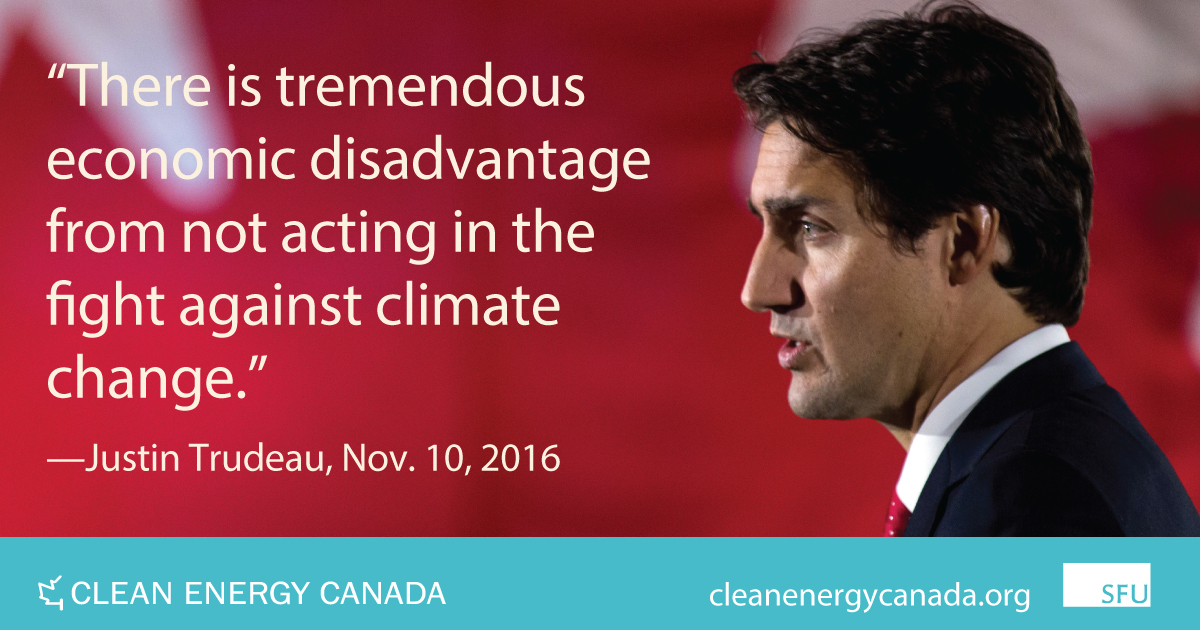
Even the very best get it wrong sometimes.
That’s the only explanation we’ve got for a recent column from environmentalist Bill McKibben.
In it, McKibben calls Justin Trudeau a “stunning hypocrite” on climate change whose actions make him a “brother” to climate sceptic Donald Trump.
Most of the time, McKibben is a brilliant writer and a thoughtful strategist. But any objective comparison would show that Trudeau’s position on climate change is far stronger than Trump’s.
So what is McKibben missing? His argument, in a nutshell, is that Trudeau’s decision to approve new oil pipelines “completely overwhelms” anything else his government may do to tackle carbon pollution.
No doubt about it: if they’re built and filled, new pipelines would grow Canada’s emissions and make it harder to hit our targets. Pipelines matter.
But climate action isn’t just about what we need less of; it’s also about what we need more of. And on that score, Trudeau and Trump are miles apart.
Under the Trudeau government, Canada is adopting many of the most important policies that spur clean growth.
Exhibit A is a price on carbon, a foundational policy that rewards clean innovation and curbs demand for fossil fuels.
Trudeau has committed that every province will start pricing carbon next year.
On the other side of the border, where even Hillary Clinton wasn’t planning a national price on carbon, we expect to see one from Donald Trump precisely never.
Back in December, Trudeau brought together his provincial and territorial counterparts to negotiate a national plan that aims to hit our climate target—a Canadian first.
Part of that plan involves phasing out traditional coal power by 2030. In sharp contrast, one of President Trump’s recent executive orders attempts to support the coal sector by undoing his predecessor’s Clean Power Plan.
The most recent federal budget singled out clean technology as an economic priority for Canada. And it invested in the rules and regulations we’ll need to go from having a climate plan to making it real.
Donald Trump’s budget proposal? It contained a 31% reduction to the Environmental Protection Agency’s budget, along with cuts to climate programs elsewhere in government.

Of course the Trudeau government’s approach isn’t perfect. Much of what they have promised is still a work in progress. Some commitments seem to be getting weaker as they move from news release to reality. Even if every measure in the national plan goes into effect as promised, it still doesn’t fully deliver the reductions we need for our 2030 goal.
But that’s what action on climate change usually looks like in real life. And even when there’s room for improvement, clean growth policies are delivering results.
When governments have priced carbon, the policy cuts pollution and spurs innovation.
When they’ve invested in clean power, technology costs have dropped to the point that clean electricity is beating out fossil power on price alone in a growing number of jurisdictions. Solar created one out of every 50 new jobs in the U.S. last year, and the sector now employs more Americans than coal.
When governments write laws and create conditions for clean growth, markets respond. Bigly. We saw it in the U.S. under President Obama, and we’re starting to see it in Canada under Prime Minister Trudeau.
There’s another angle to Canada-U.S. climate comparison that didn’t make its way into Bill McKibben’s assessment—though it’s one that, in his defense, it’s easier for Canadians to appreciate.
Unfortunately, there’s a long tradition in Canada of viewing whatever the U.S. is doing as the upper limit to our own ambitions on clean growth. For those in that camp, Donald Trump gave Justin Trudeau a gold-plated excuse to do less to tackle climate change.
Of course our Biggest Trading Partner always looms large on this side of the border. Trudeau’s predecessor, Stephen Harper, spent a decade arguing that it’s a terrible idea for Canada to move ahead of the U.S. in curbing carbon pollution—and most of the business community agreed with him.
They still do: virtually every conversation about climate change in Canada these days includes the words “Trump” and “competitiveness.”
Trudeau’s government has largely stayed the course despite pressure to wait for Trump. Our Prime Minister has even pointed to Trump’s inaction on climate change as an opportunity, noting that if the U.S. steps back, there’s more space for us to step up.
Unfortunately, being better than Donald Trump on climate change is a very low bar. But it’s one that Justin Trudeau clears easily, and that’s very good news for Canadians.
This article originally appeared on the Huffington Post and was co-written by Clare Demerse, federal policy advisor at Clean Energy Canada.
You can read more of the news on source
